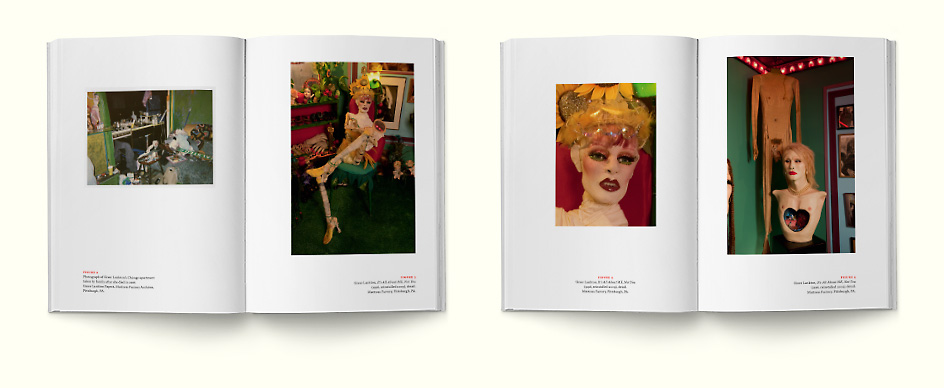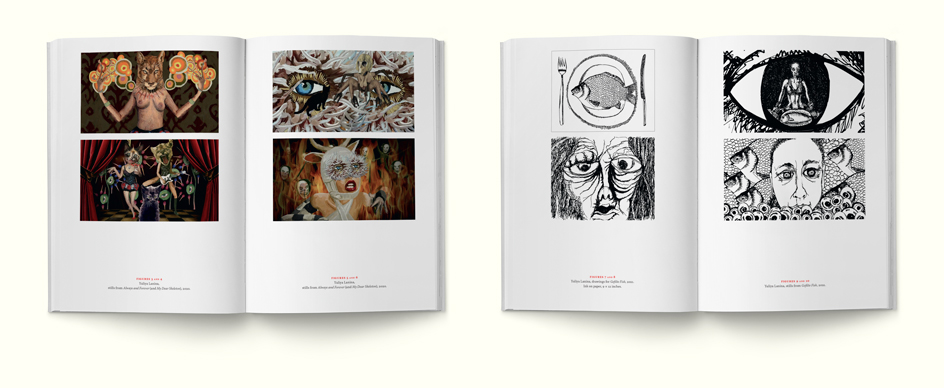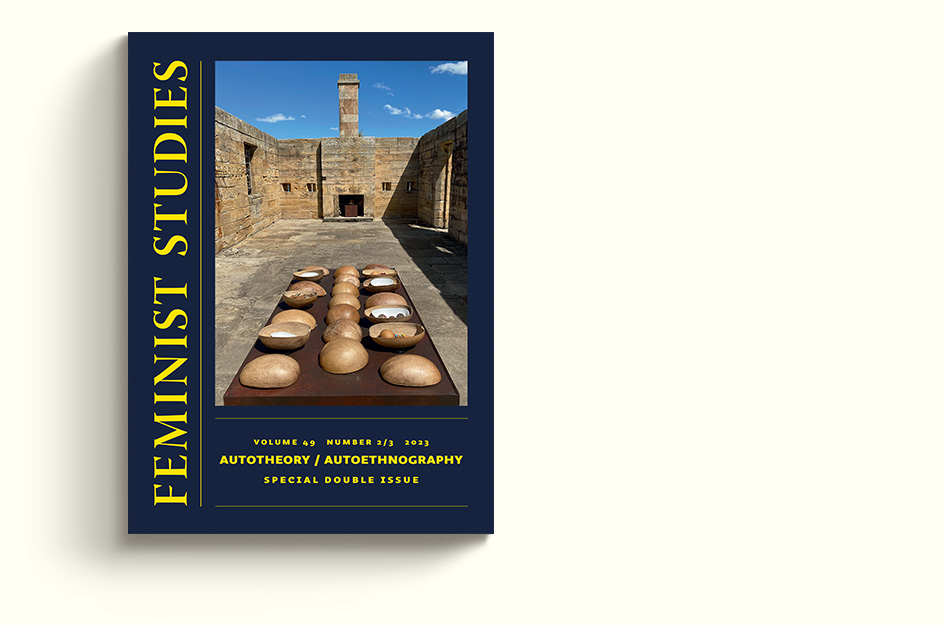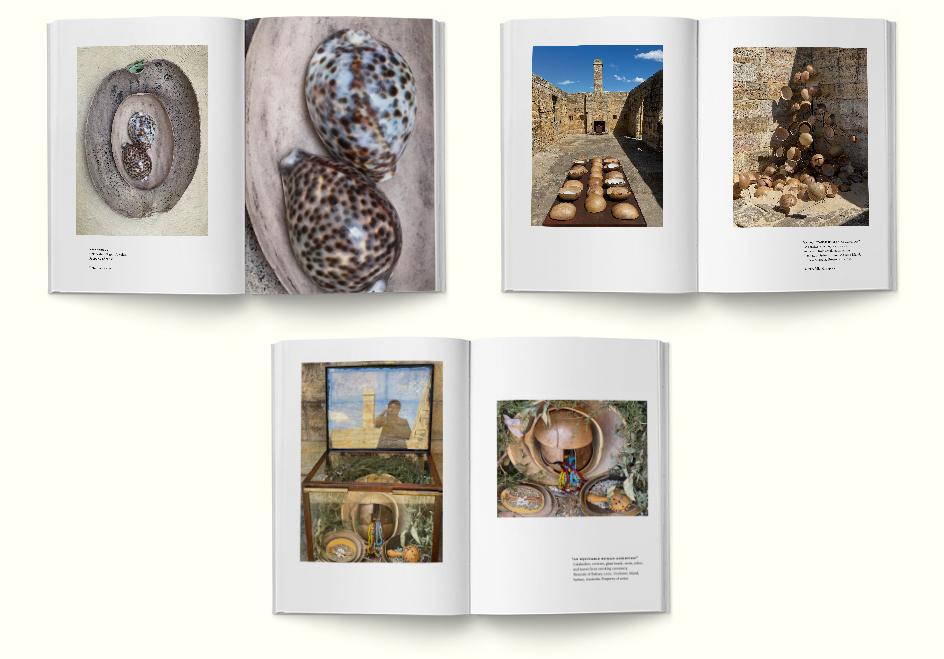The Feminist Studies website is currently undergoing a redesign.
The journal continues to accept submissions. Please submit your manuscripts to submit@feministstudies.org. Submissions should be in the form of an anonymized Word document that does not exceed 10,500 words and follows The Chicago Manual of Style.
For questions about our submission guidelines, including submissions of art work,
please contact Fielding Montgomery (Submissions Editor) at fmontgom@feministstudies.org.
For questions about subcriptions, permissions, or other concerns,
please contact Karla Mantilla (Consulting Managing Editor) at karla.mantilla@feministstudies.org.
News and Views Call for Submissions
January 17, 2026
In 2026, Feminist Studies is inviting submissions for our News and Views section. This dynamic forum showcases concise, incisive feminist reflections that intervene in the urgent debates shaping our current moment.
We seek short pieces (up to 1,500 words) for online and/or print publication that bring distinctly feminist analysis to pressing social, political, cultural, and technological issues, including:
- Surveillance culture and technology
- Artificial intelligence and algorithmic power
- Climate change and environmental justice
- Fake news, misinformation, and disinformation
- Censorship and freedom of speech
- Reproductive justice
- Racial and gender inequalities
- Indigenous rights and sovereignty
Current issue


Two themes crosscut the essays in this issue of Feminist Studies: what are the political stakes of comparison as a research method, and what is meant by relationality in queer, trans, and feminist scholarship. Benjamin Höhne compares the rhetoric of two powerful politicians in Germany and the United States to respond to the urgent need to understand the rise of both politicians. Their wide appeal, Höhne argues, comes from right-wing populism’s capacity to hold multiple, even contradictory, anti-feminist positions and deploy them dynamically to include different social groups. This strategy allows the rhetoric to be recognizable as a transnational phenomenon that is deeply nation specific. Beenash Jafri compares two independent queer films set in urban and rural spaces in the United States to argue against the representation of the urban as a space of queer safety and the rural as the primary site of anti-LGBTQ violence and suicide. While Jafri argues against universal queer imaginaries by embedding suicide in place-specific histories of racialization and structural violence, Marlena Gittleman tracks how María Irene Fornés’s 1977 play Fefu and Her Friends evokes sensorial responses to embodiment, thereby calling into question relationality to self, to other actors on the stage, to actors off the stage, to the audience, and to a shared sense of reality. Cyle Metzger advocates that scholars (feminist, queer, trans) look to a 1996 installation that, like Fornés’s play, also emerged in downtown New York. Metzger probes how the reconstruction of artist Greer Lankton’s own apartment within a museum gallery space prompts insight into the differences between queer and trans temporalities while providing a specifically trans lineage to hold onto in the face of discrimination. Jameela F. Dallis’s poetry also testifies to the merits of returning to art, this time connecting readers to a Dutch Vanitas painting. Dallis’s two poems, as an iterative pair, offer a haunting depiction of the long-term interspecies impact of war, extraction, and capital. In a conjunctures essay, Cole Adams discusses new books in disability studies that address the limitations and possibilities of living, thinking, organizing, and writing in the “Age of Disability.” Taken together, these books “paint a picture of a field continuing to make strides in generating a form of critical writing that offers capacious, receptive, and, indeed, experimental responses to the political exigencies of the present.” The articles and art represented in this issue demonstrate the journal’s commitments to interdisciplinarity and to queer, trans, and feminist politics. These essays offer important contributions to gender/women’s/sexuality studies, film studies, art history, political science, and performance studies.
[CONTINUE...]
- Contributors
- Benjamin Höhne
- Beenash Jafri
- Marlena Gittleman
- Cyle Metzger
- Jameela F. Dallis
- Cole Adams
- Featuring art by Greer Lankton
Previous issue


What will feminism do?
In our classrooms and communities, this question has been posed with intensifying urgency and creeping skepticism over the past few years. Perhaps this provocation responds to the climate of court decisions and legislation attacking abortion rights, or to the uprisings in places across the world that pivot around questions of women’s and minoritized gender rights, or to the growing outrage over the events unfolding in Palestine, Congo, Sudan, and Haiti. For those of us invested in feminist inquiry and activism, this is a critical moment to revisit our commitments as well as the possibilities of our shared and varied field of study and engagement. The ever-expanding terrain upon which we document, theorize, archive, and debate the who, what, how, and why of anti-oppressive work demands incisiveness, precision, rigor, and thoughtfulness.
The range of ways we as feminist scholars approach this moment is abundant and not bounded by discipline. Feminist scholars mine the depths and recesses of our worlds to uncover upending, world-making, creative exegesis, and paradigmatic, epistemological, and ontological shifts and ruptures. In this issue of Feminist Studies, we have the pleasure of offering a diverse array of pieces that encapsulate this field-defining breadth. There’s no single theme connecting these exciting pieces. Although single-topic special issues have become common in feminist academic journals, this issue presents an opportunity to showcase pieces that signal both current and future directions for feminist inquiry and reinforce our collective’s dedication to publishing groundbreaking feminist scholarship.
Anja H. Lind’s “(De)Constructing the Vulva: Locating the Labia in Trans ‘Vaginoplasty’” offers a compelling sociocultural exploration of medical discourses about vulvas and vaginoplasties. Attentive to colonial histories as well as the stakes of sexual embodiment, Lind pushes us away from ideal embodiments and socially constructed physical attributes toward a more robust figuration of vulvas. Underpinning the fascinating core argument of this article is a formidable critique of the medical profession and the disciplining force of medical discourses. Furthermore, it beckons us toward future study of trans people’s experiences of wanting vaginoplasty and their postoperative perspectives. This piece moves us between trans and feminist studies with a palpable urgency.
Stacey Colliver’s “Porn Vilification and Age Verification: Regulating of Online Pornography and Sex Work” is a provocative critique of efforts to control online pornographic content; it is anchored in the concerns of sex workers about the technological and legal channels used in efforts to avoid young people’s exposure to sexually explicit material. Colliver underscores the importance of using technological restrictions that do not further criminalize sex workers or render their work unsustainable. Feminist discussions of pornography have long been contentious, and we have published the work of many scholars (Jennifer Nash, Heather Berg, and Ariane Cruz) offering novel logics and language to grapple with the practice of pornography. Colliver’s distinct intervention in this field is to simultaneously account for new technological and legal efforts to limit or ban pornography while also recognizing young people’s proliferating access to pornography. We expect this piece to prompt a lot of impassioned conversations.
Rebecca Rossen’s “Bodily Transfigurations and Transgenerational Trauma in the Multimedia Art of Yuliya Lanina” focuses on two of the artist’s works that were created amid debilitating back pain and that mark her attempt to engage in somatic dialogue with her pain. Rossen discusses how Lanina’s multimedia video performance My Dear Skeleton (2020) as well as her stop-motion animated film Gefilte Fish (2020) address personal, familial, and transgenerational trauma through their exploration of suppressed and entangled histories of genocide, sexual violence, and immigration. Rossen points to how, in both works, Lanina uses bodily excess and transfiguration not only to confront victimization in visceral ways, but also to counteract silencing. In so doing, these works engender radical new forms of embodiment and fantastical feminist realms that constitute sites of healing and self-reclamation.
Pang Laikwan’s “Writing behind Bars: The Fandom That Queers Our Political Subjectivity” provides close readings of materials both produced by and publicly available about Gwyneth Kwai-Lam Ho, a female political prisoner in Hong Kong. Pang carefully unpacks Ho’s resistance to heroization and her struggle to hold onto her political commitment and psychic longing during (and despite) her confinement. Pang centers an often-overlooked area of Ho’s work—her fandom writings—in her examination of the unexpected ways Ho pursues freedom in the face of imprisonment. Pang argues that we should not separate political engagement from something considered entertainment; so-called private emotions and psychic spaces also bring forth important insights about political freedom that we should engage to advance our political goals.
Lillian Marie Nagengast’s conjunctures essay discusses queer and feminist studies as sites of possibility for studies of rural America that challenge reductionist representations proliferating in the wake of the 2016 US elections and the Donald Trump presidency. Nagengast argues that the works of Ryan Lee Cartwright, Carly Thomsen, and Clare Forstie not only unsettle the metronormativity or urban assumptions embedded in feminist and queer studies; they offer more capacious approaches to the rural, advancing our understanding of the significance of geographic location to social relations of power. Rather than approach rural Americans as “bad subjects” who must be disciplined or whose failures must be decried, Nagengast instead discusses how the works of Cartwright, Thomsen, and Forstie “think with” rural America in ways that—as Jennifer Nash and Samantha Pinto urge us to do in their recent volume on intersectionality/Black feminist theory—widen the boundaries of feminist projects.
In her poem “Daphne, 2000s,” Hannah Baker Saltmarsh explores the intricate and complex affectations and strategies we develop and embody to survive sexual violence and evolve sexual agency. Like Daphne, who escapes violation by transforming into a laurel tree, we grow and adapt, try new protections and tactics. But whether our “impulses [are] to lock a door or/ rip it off its hinge,” the power of female transformation and growth, both internal and external, can resist, repel, and reawaken.
We close this issue with a News and Views commentary on a five-year survey (2018–2023) of our field’s institutional health by Tracey Jean Boisseau and Heather Rellihan, with Adrianna L. Ernstberger. The authors surveyed WGSS directors, chairs, faculty, and staff about their perceptions of the relative security or precarity of their programs and careers, and of the field at large. The authors note that while quantitative metrics provide important data about the health of institutions, their own survey, which includes both quantitative and qualitative questions, “also defines the state of the field through the subjective experience of WGSS practitioners.” They comment on the views of their respondents about exhaustion and burnout and illustrate how the field is in a paradoxical position where it is “more important than ever; more at risk than ever.”
Whether through challenging the primacy of medical discourses wedded to a gender/sex binary, or considering pornography’s simultaneous proliferation and attempts to restrict it, or examining the political possibilities of fandom writings, or “thinking with” rural America, or emphasizing the significance of the fantastical in the aftermath of victimization, what’s found in these pages is a refusal of boundaries—disciplinary or otherwise. These authors show us what feminism does and can do. The future is feminist. [CONTINUE...]
- Contributors
- Treva Lindsey and Attiya Ahmad
- Anja H. Lind
- Stacey Colliver
- Rebecca Rossen
- Pang Laikwan
- Lillian Marie Nagengast
- Hannah Baker Saltmarsh
- Tracey Jean Boisseau and Heather Rellihan,
with Adrianna L. Ernstberger
- Featuring art by Yuliya Lanina
Notable Previous issue


“The history of feminism is, in a sense, a history of autotheory,” writes Lauren Fournier in her 2021 book, Autotheory as Feminist Practice in Art, Writing, and Criticism. This special issue of Feminist Studies features essays, artworks, and an interview that contribute to these intertwined histories by enacting autotheory and/or reflecting on the development of the field. The volume opens with two essays that explore embodied possibilities for living in a world saturated with violence. Cynthia Belmont reflects on deer hunting as an ecofeminist practice, arguing that vegans and subsistence hunters might find common ground in grappling with the complexities and complicities of our relationships to the land and creatures that enable us to live. Megan Sweeney creates a dialogue among three contemporary autotheorists—Christina Sharpe, Arianne Zwartjes, and Melissa Febos—who draw upon their embodied experiences in reckoning with pervasive forms of racialized, nationalized, and gendered violence.
The next five pieces in this special issue center marginalized bodies and care work. Focusing on a difficult period when she was navigating a health crisis and conducting research about murders of Black women, Terrion L. Williamson discusses how reading the work of Audre Lorde renewed her affective relationship to Black feminism, reminding her that it is not just “a theory to be applied” but “a framework for a way of being.” Devaleena Das recounts her devastating experiences as an immigrant mother of color who witnessed the death of her newborn infant. Das’s autotheory illuminates how racist and sexist dimensions of the healthcare system fundamentally shape the biopolitics of visibility, protection, and care. Marshall Azad McCollum, a Bangladeshi-American, reflects on the devaluation of domestic care labor in capitalist societies; while living with his ailing grandmother in Bangladesh, McCollum witnessed how the crisis of care jeopardized the health of both his grandmother and her live-in caretaker. Na Mee’s creative nonfiction explores care work from the dual perspective of a mother whose son is a puzzle she will “never solve” and a grieving daughter who cannot save her dying father in real life or in her dreams. Finally, in dialogue with anthropologist Lyndon K. Gill, Black feminist ethnographer Gina Athena Ulysse interprets a collection of Haitian Kwi (calabash bowls) and Bwapin (fabric-wrapped pine kindling) as a Rasanblaj, a feminist “regrouping against the scattering” that enables viewers to identify and sit with the wounds of slavery.
The next four pieces in this special issue highlight questions of method in engaging with and enacting autotheory. In her interview with Megan Sweeney, Arianne Zwartjes discusses the relationships among autotheory, autopolitics, and creative nonfiction, and she offers suggestions for helping students to navigate the ethical complexities of reading and writing autotheory. Conceptualizing autotheory as a “trans method,” Eamon Schlotterback examines how trans scholars use autotheoretical techniques to craft their sense of self, create alternative modes of community, and produce counterhegemonic forms of knowledge. Olivia Ordoñez analyzes Taylor Swift as an “autotheoretical songwriter” who explicitly foregrounds her ongoing process of self-construction through her songwriting, segmentation of her career into distinct eras, and re-recordings of her first studio albums. Kristen E. Nelson adopts autotheory as a method for exploring broader histories through the lens of a single story; by attempting to understand the life of a single woman burned as a witch, she attempts to fathom the loss of the countless women murdered as witches in Early Modern Europe.
This special issue concludes with two essays that foreground collaborative methods of generating autotheory. Six long-term friends from different countries—Azza Basarudin, Tina Beyene, Elora Halim Chowdhury, Sharmila Lodhia, Catherine Z. Sameh, and Khanum Shaikh—illustrate the varied ways that stories about preparing and consuming food serve as crucial sites for analyzing home and nation as spaces of attachment. Israeli feminists Amal Ziv and Maya Lavie-Ajayi collaboratively interrogate their own sexual histories in relation to contemporary feminist debates, conceptualizing sexual agency “as a context-dependent and relational experience” that can coexist with “internalized oppressive discourses.”
[CONTINUE...]
- Contributors
- Cynthia Belmont
- Megan Sweeney
- Terrion L. Williamson
- Devaleena Das
- Marshall Azad McCollum
- Na Mee
- Lyndon K. Gill and Gina Athena Ulysse
- Arianne Zwartjes
- Eamon Schlotterback
- Olivia Ordoñez
- Kristen E. Nelson
- Azza Basarudin, Tina Beyene, Elora Halim Chowdhury, Sharmila Lodhia, Catherine Z. Sameh, and Khanum Shaikh
- Amal Ziv and Maya Lavie-Ajayi
- Stephanie Spector, Samantha Auerbach, Julie Laut, Lara Caroline Islinger, and Emaline Marie Reyes
- Loubna Qutami, Inderpal Grewal, Caren Kaplan, Sherene H. Razack, Evelyn Alsultany, Minoo Moallem, Elora Shehabuddin, and Nadine Naber
- Featuring art by Gina Athena Ulysse
|
Social Media
Find us on Facebook.
Follow us on Twitter.